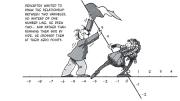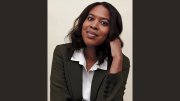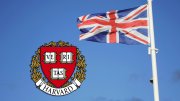Sometimes an Art: Nine Essays on History, by Bernard Bailyn, Adams University Professor emeritus (Knopf, $28). A superb argument for anthologizing essays, here by the preeminent historian of early America, on two themes: history itself, and the peripheries of the early British empire. Readers will be grateful to have “Three Trends in Modern History,” an illuminating dissection of the rise of and uses of quantification, spatial relationships (from the center, say London, to the margins of empire), and the links between “interior, subjective experiences” and “the course of external events.”
Frank, by Barney Frank ’61, J.D. ’77 (Farrar, Straus and Giroux, $27), and A Very Private Public Citizen: The Life of Grenville Clark, by Nancy Peterson Hill (University of Missouri Press, $40). Two very different lives, but both Harvardian and public-spirited. Frank’s autobiography covers his life as a colorful, and for a long time closeted, U.S. congressman. Noting a change in the newspaper’s style, he observes, “I believe I am the last man in history to be described as ‘homosexual’ in The New York Times as a matter of editorial policy.” Clark, A.B. 1903, LL.B. ’06, LL.D. ’51, a mandarin at the pinnacle of New York lawyering, friend and counselor to presidents, served on the Corporation from 1931 to 1950, delivering timely, crucial defenses of academic freedom against the loyalty-oath challenges of the day.
The Birth of a Nation, by Dick Lehr ’76 (PublicAffairs, $26.99). The hitherto unreported confrontation between the Hollywood director D.W. Griffith and Monroe Trotter, A.B. 1895, A.M. ’96, Boston newspaper editor and African-American activist, who led focused protests against the depiction of slaves and Klansmen in Griffith’s blockbuster movie (its title is the book’s) about the Civil War and Reconstruction.
Reynard the Fox, a new translation by James Simpson, Loker professor of English (Liveright, $24.95). In perhaps the most famous extended animal fable, the wily Reynard—unconstrained by mere morals—tricks, outwits, or eats overbearing others. Grounded in medieval scholarship, but lively satirical fun; illustrated.
Atheist Mind, Humanist Heart, by Lex Bayer and John Figdor, M.Div. ’10 (Rowman & Littlefield, $32). Bayer, an entrepreneur, and Figdor, humanist chaplain at Stanford, join in “rewriting the Ten Commandments for the twenty-first century.” They even launched a crowdsourced project to select the top 10 beliefs to live by.
Essays After Eighty, by Donald Hall ’51 (Houghton Mifflin Harcourt, $22), and The Devil’s Tub, by Edward Hoagland ’54 (Arcade, $24.95). Two original literary lions in winter, still roaring. Hall, a poet laureate of the United States and National Medal of Arts honorand, writes frankly, from age: on a New Hampshire winter’s day, “I teeter when I walk, I no longer drive, I look out the window” at accumulating snow. Hoagland, who has crafted reportage, essays, and fiction from difficult places (geographically and psychologically), here collects 10 short stories. The title piece appropriately begins with a character who is a “daredevil.”
Banned: A History of Pesticides and the Science of Toxicology, by Frederick Rowe Davis ’88 (Yale, $40). An environmental historian and historian of science at Florida State analyzes the poster-child of pesticides, DDT, in the wake of Rachel Carson’s Silent Spring; the evolution of toxicology; and the subsequent development of new compounds—some implicated in causing collateral harm to bees, birds, and possibly other species today.
Ultimatum from Paradise, by Jacqueline Osherow ’78 (Louisiana State University Press, $18.95 paper). A seventh collection of poems—many anchored in places (the rose dusk of Salt Lake City in January, the “…cabal / of trees—poincianas, / oleanders, jacarandas…” in Tel Aviv) and place-makers (Charles Rennie Mackintosh, Antoni Gaudí). The author is Distinguished Professor of English and creative writing at the University of Utah.
Making Money: Coin, Currency, and the Coming of Capitalism, by Christine Desan, Gottlieb professor of law (Oxford, $85). A constitutional historian dives deep into the political economy of money in England—from royal monopoly to joint creation with private investors—to illuminate how the means of exchange is in fact a form of governance and of social order. In a different vein, Amy Reynolds ’99, assistant professor of sociology at Wheaton College, writes in Free Trade and Faithful Globalization (Cambridge, $90) about various religiously based reactions (often quite critical) toward free trade and globalization, which are commonly seen as value-neutral in economic discourse; opposition, therefore, is commonly underestimated.
He Wanted the Moon, by Mimi Baird with Eve Claxton (Crown, $25). Perry Baird, M.D. ’28, disappeared from his daughter’s life when she was six. Fifty years later, in 1994, his diary/manuscript on his manic-depression and institutionalization came into her hands, and now forms the basis of her memoir wrapped around that text—a painful and revealing portrait of severe mental illness in an earlier era.
To improve your STEM (look it up) self: The Cartoon Guide to Algebra, by Larry Gonick ’67, A.M. ’70 (Morrow, $18.99 paper), the latest in the series, begins with Chapter 0 (you have to know arithmetic) and gently leads you through and beyond the terrors of high-school math. Dinah L. Moché ’58, professor of astronomy at Queensborough Community College/CUNY, tilts your sights higher in the eighth edition of Astronomy: A Self-Teaching Guide (Wiley, $21.95 paper). And in a collaborative first, computer scientist Ellie Baker, Ph.D. ’99, and Susan Goldstine, Ph.D. ’98, chair of mathematics and computer science at St. Mary’s College, have confected Crafting Conundrums: Puzzles and Patterns for the Bead Crochet Artist (CRC Press, $39.95), a mathematically grounded guide to torus knots, planar mapping, your own Escher bracelets, and more.










